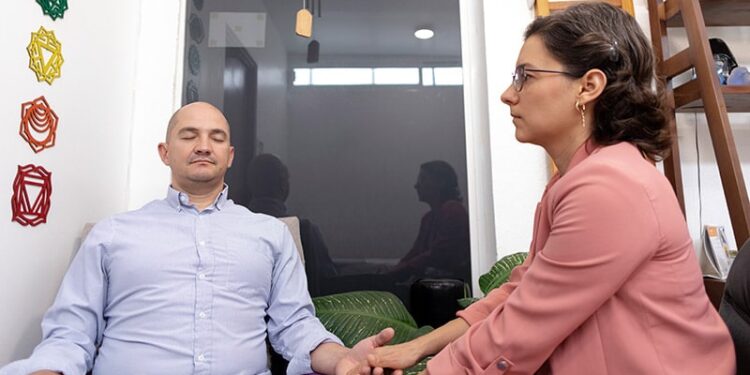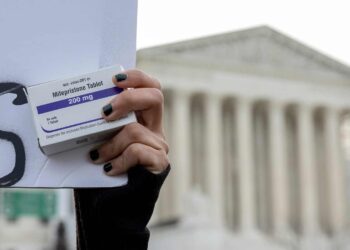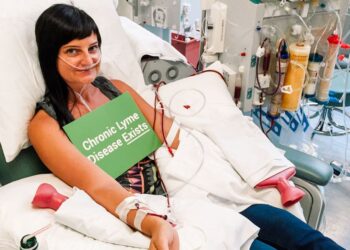An international expert panel has developed the first consensus-based framework for reporting “set and setting” variables in psychedelic clinical trials.
The guidelines create a standardized protocol for psychedelic clinical trials that accounts for the mental state of the user and the environment in which the psychedelic experience takes place.
The Reporting of Setting in Psychedelic Clinical Trials (ReSPCT) guidelines were developed using the Delphi method and involved 89 experts in the field from 17 different countries. The expert panel included not only clinicians and researchers but also past clinical trial participants who provided the all-important lived experience.
They were published online on June 3 in Nature Medicine.
Context Matters
It’s common knowledge that “set and setting” — the mindset of a person taking a psychedelic and the environment in which they take it — have a “huge impact on the psychedelic experience itself,” co-lead author Chloé Pronovost-Morgan, MD, psychiatry resident, McGill University, Montreal, Quebec, Canada, told Medscape Medical News.
“The same drug at the same dose can produce diametrically opposing reactions depending on context — ranging from terrible anxiety to mystical-like experiences,” she added.
Yet, a recent systematic review showed that most psychedelic trials provide minimal detail about context, making it difficult to understand what actually took place and what participants experienced.
“Were they given psilocybin in a cozy room in the countryside overlooking a field or in a sterile hospital while in a giant brain scanner? If we know that context matters, then we need to know what the context actually was. Otherwise, study findings are difficult to interpret, replicate, and apply,” said Pronovost-Morgan.
The ReSPCT framework consists of 30 variables divided into four sections the panel deemed essential to report.
The first focuses on the physical and sensory environment. This includes details about the study setting (eg, indoors or outdoors, private clinic, hospital, or retreat center), room design (whether a specific ambiance was intentionally created — such as nature-inspired, psychedelic-themed, ceremonial/shamanic, or home-like), sensory modulation tools (such as the use of eye shades or noise-cancelling headphones), and the presence of objects or decorations (including artwork, candles, statues, or religious and spiritual items).
“Context is often not appropriately reported, including studies I’ve participated where I wasn’t the principal investigator” Matthew W. Johnson, PhD, with the Department of Psychiatry and Behavioral Sciences, Johns Hopkins University School of Medicine, Baltimore, told Medscape Medical News.
Johnson, who wasn’t part of the panel, said he’s had to “battle to get in important methods into papers such as the presence of religious iconography.”
Religious or spiritual items in the room may lead participants to interpret their experiences in a more spiritual way. Johnson noted that some researchers hesitate to report these details out of concern that a spiritually charged setting could cast doubt on the results — implying the experience was influenced rather than spontaneous.
Need for Realistic Information
The second section of the guidelines outlines key aspects of the dosing session procedure that should be reported. This includes who was present during the session; whether music or a soundscape was used; the verbal and physical interactions that took place and how consent was obtained; the level of participant autonomy and control over activities and the environment; details of the dosing regimen — including dosage, frequency, route of administration, and duration of the session; and any disturbances or interruptions that may have affected the quality of the experience.
The third section focuses on the therapeutic framework and protocol. This includes reporting specific topics covered and activities conducted during preparation sessions — such as reviewing the patient’s medical and psychological history, setting intentions and expectations, addressing questions or concerns, and providing psychoeducation. It also calls for documentation of the credentials and training of the staff involved, including aspects of cultural competence and safety.
Johnson noted the amount of preparation time is often not explicitly reported in trial publications.
“We need realistic information — was it 8 or 12 hours of preparation — not the shorter figures often listed. There is often more time spent with participants than is reported, in my experience,” he said.
The fourth and last section of the guidelines addresses participants’ subjective experience, capturing their perceptions of the environment — including therapeutic rapport, sense of comfort, and feelings of safety.
Pronovost-Morgan said a broader goal of the guidelines is not only to document the objective aspects of the environment but also to capture participants’ subjective experiences, such as whether they felt physically safe during the session.
She explained that the guidelines are primarily intended to improve the consistency and clarity of reporting in psychedelic trials while also encouraging research teams to take a more deliberate and thoughtful approach to designing studies.
Paving the Way for Evidence-Based Care
The panel encourages researchers to incorporate the 30 ReSPCT items in either the main text or supplementary materials of their publications. Over time, this practice could allow for comparison of outcomes across trials based on these contextual variables, helping to identify which factors have the greatest influence on clinical results.
“That kind of clarity could help us move beyond tradition or intuition and toward evidence-based contextual care. The field already has a sense that certain variables — like music or the therapeutic team — matter enormously. But I suspect some of the less obvious items on the list will turn out to be surprisingly influential, which is exciting to think about,” said Pronovost-Morgan.
Until now, a key limitation of psychedelic clinical trials has been the insufficient consideration of how a participant’s mindset and environment can influence the effects of substances like 3,4-methylenedioxymethamphetamine (MDMA) and psilocybin.
This lack of standards has already had consequences beyond the research lab. As previously reported by Medscape Medical News, the FDA recently rejected MDMA-assisted therapy for posttraumatic stress disorder (PTSD), citing inconsistent reporting across trials as a key reason for its decision.
Paul E. Holtzheimer, MD, director of the VA’s National Posttraumatic Stress Disorder Brain Bank and member of the FDA panel that rejected MDMA for PTSD, said the therapy element is “a bit of a black box,” adding that “it’s a relatively vague, ill-defined treatment.”
“We think the ReSPCT guidelines will help researchers, clinicians, and regulatory bodies gain a better understanding of what lies in that ‘box,’ so that we can understand what these therapies entail as a whole — including the nondrug variables that are crucial to safety and efficacy,” said Pronovost-Morgan.
“Our guidelines will also help in replicating results and understanding the true therapeutic potential of psychedelics,” co-senior author Leor Roseman, PhD, Department of Psychology, University of Exeter, Exeter, England, added in a statement.
That should increase the chances of regulatory approval for psychedelics, the panel predicted.
Co-senior author Kyle Greenway, MD, MSc, from McGill University’s Department of Psychiatry, emphasized that the importance of carefully considering context extends beyond just psychedelic drugs.
“Converging lines of preclinical and clinical evidence support that contextual influences can be significant for consciousness-altering effects for a wide variety of drugs, from antidepressants and benzodiazepines to alcohol and opiates. Psychedelic drugs may provide the most striking examples of drug-context interaction effects, but contextual influences warrant greater scientific and clinical attention for psychoactive substances much more generally,” said Greenway.
This Delphi study was supported by funds from the Societal Engagement Seed Fund, Imperial College London, London, England, which were used to remunerate past clinical trial participants for their time completing the four survey rounds. This study presents independent research partly funded by the National Institute for Health and Care Research Biomedical Research Centre at South London and Maudsley National Health Service Foundation Trust and King’s College London, London, England. A complete list of disclosures for panel members is available with the original article. Johnson has served as a consultant to Ajna Labs, AWAKN Life Sciences, Beckley Psytech, Ltd., Clarion Clinics, Mind Medicine, Negev Capital, Otsuka Pharmaceutical Development & Commercialization, and Reunion Neuroscience.
Source link : https://www.medscape.com/viewarticle/new-guidelines-aim-make-psychedelic-trials-safer-clearer-and-2025a1000g68?src=rss
Author :
Publish date : 2025-06-17 13:38:00
Copyright for syndicated content belongs to the linked Source.













